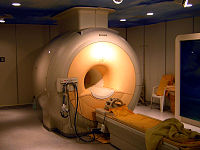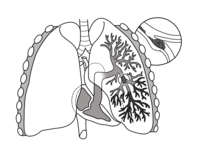
Angiography‐derived versus invasively‐determined index of microcirculatory resistance in the assessment of coronary microcirculation: A systematic review and meta‐analysis
Sign Up to like & getrecommendations! Published in 2022 at "Catheterization and Cardiovascular Interventions"
DOI: 10.1002/ccd.30174
Abstract: The index of microvascular resistance (IMR) is an established tool to assess the status of coronary microcirculation. However, the need for a pressure wire and hyperemic agents have limited its routine use and have led… read more here.
Keywords: review meta; index; meta analysis; resistance ... See more keywords

Diagnostic performance of angiography‐derived fractional flow reserve in patients with NSTEMI
Sign Up to like & getrecommendations! Published in 2022 at "Catheterization and Cardiovascular Interventions"
DOI: 10.1002/ccd.30526
Abstract: Noninvasive methods of estimating invasively measured fractional flow reserve (FFRinvasive) are actively being explored, aiming to avoid the use of an invasive pressure wire and the administration of hyperemia‐inducing drugs. Coronary angiography‐derived FFR (FFRangio) has… read more here.
Keywords: fractional flow; angiography derived; diagnostic performance; performance ... See more keywords

The spectrum of angiography‐derived IMR according to morphological and physiological coronary stenosis in patients with suspected myocardial ischemia
Sign Up to like & getrecommendations! Published in 2023 at "Clinical Cardiology"
DOI: 10.1002/clc.23999
Abstract: Coronary microvascular dysfunction is crucial in determining myocardial ischemia; however, the relationship between epicardial coronary diameter stenosis (DS) and the index of microcirculatory resistance (IMR) remains unclear. We sought to explore the distribution of coronary… read more here.
Keywords: ischemia; myocardial ischemia; suspected myocardial; derived imr ... See more keywords

Validation of Coronary Angiography-Derived Vessel Fractional Flow in Heart Transplant Patients with Suspected Graft Vasculopathy
Sign Up to like & getrecommendations! Published in 2021 at "Journal of Heart and Lung Transplantation"
DOI: 10.1016/j.healun.2021.01.1840
Abstract: Purpose Cardiac transplant-related arteriopathy remains a leading cause of morbidity and mortality in heart transplant (HTx) recipients. Recently, vessel fractional flow reserve (vFFR) derived from coronary angiography has emerged as a new diagnostic computational tool… read more here.
Keywords: transplant; heart; ffr; angiography derived ... See more keywords

IS CT ANGIOGRAPHY-DERIVED RIGHT TO LEFT VENTRICULAR DIAMETER RATIO ADEQUATE FOR PULMONARY EMBOLISM RISK STRATIFICATION?
Sign Up to like & getrecommendations! Published in 2018 at "Journal of the American College of Cardiology"
DOI: 10.1016/s0735-1097(18)32470-7
Abstract: Risk stratification of acute pulmonary embolism (PE) involves assessment of right ventricular size. The performance of CT vs. ECHO derived RV:LV ratio has not been well studied. All subjects diagnosed with acute PE who had… read more here.
Keywords: angiography derived; risk stratification; pulmonary embolism;

Diagnostic performance of angiography-derived fractional flow reserve: a systematic review and Bayesian meta-analysis
Sign Up to like & getrecommendations! Published in 2018 at "European Heart Journal"
DOI: 10.1093/eurheartj/ehy445
Abstract: Aims Pressure-wire assessment of coronary stenosis is considered the invasive reference standard for detection of ischaemia-generating lesions. Recently, methods to estimate the fractional flow reserve (FFR) from conventional angiography without the use of a pressure… read more here.
Keywords: analysis; systematic review; angiography; angiography derived ... See more keywords

Predictive value of thrombolysis in myocardial infarction frame count for coronary microvascular dysfunction evaluated with an angiography-derived index of microcirculatory resistance in patients with coronary slow flow
Sign Up to like & getrecommendations! Published in 2022 at "Quantitative Imaging in Medicine and Surgery"
DOI: 10.21037/qims-22-224
Abstract: Background The association between coronary slow flow (CSF) and coronary microvascular dysfunction (CMD) remains unclear. The objective of this study was to evaluate the correlation between the corrected thrombolysis in myocardial infarction (TIMI) frame count… read more here.
Keywords: slow flow; coronary slow; value; angiography derived ... See more keywords

Diagnostic Value of Angiography-Derived IMR for Coronary Microcirculation and Its Prognostic Implication After PCI
Sign Up to like & getrecommendations! Published in 2021 at "Frontiers in Cardiovascular Medicine"
DOI: 10.3389/fcvm.2021.735743
Abstract: Background: Angiography-derived index of microcirculatory resistance (angio-IMR) is an emerging pressure-wire-free index to assess coronary microvascular function, but its diagnostic and prognostic value remains to be elucidated. Methods and Results: The study population consisted of… read more here.
Keywords: angio imr; cardiac death; angiography derived; value ... See more keywords

Coronary microvascular dysfunction as assessed by angiography-derived index of microvascular resistance co-localizes with and may explain the presence of ischemia in stress-cardiac magnetic resonance imaging in the absence of coronary artery disease
Sign Up to like & getrecommendations! Published in 2022 at "Frontiers in Cardiovascular Medicine"
DOI: 10.3389/fcvm.2022.1060764
Abstract: Introduction Ischemia with no obstructive coronary disease (INOCA) is a frequent phenomenon in the cath lab. A possible cause is coronary microvascular dysfunction (CMD), which may be assessed by invasive testing with possible complications; therefore,… read more here.
Keywords: ischemia; stress; disease; microvascular dysfunction ... See more keywords